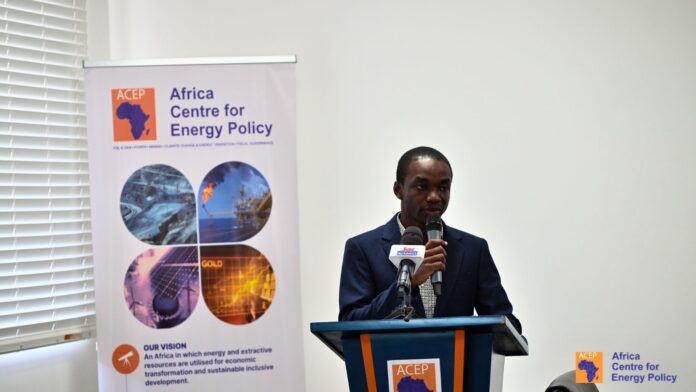Mr Benjamin Boakye, the Executive Director, Africa Centre for Energy Policy (ACEP), has advocated a national dialogue on the most effective procurement system that aligns with the Ghanaian context and delivers value to citizens.
He said Ghana should align its expenditures with revenue to reduce deficit.
Mr Boakye made the suggestion at the 3Business Economic Sustainability Summit in Accra, on the theme “Ghana Debt Crisis: Striking the Balance between Economic Growth and Fiscal Responsibility”.
The event was organised by Media General in collaboration with ACEP and IMANI Centre for Policy and Education.
Speaking on the topic: “Breaking the Cycle of IMF Support: Addressing Governance Inefficiencies and Drivers of Public Debt in Ghana,” Mr Boakye said relying merely on gross domestic product (GDP) as a benchmark was insufficient, particularly when the disparity between expenditure and revenue widened from 21 per cent in 2018 to 52 per cent in 2021.
He said there was urgent need for a performance audit of all state agencies to establish optimal numbers of staff and administrative budgets for operations.
The Government must establish mechanisms to assess the effectiveness of expenditure and the capacity of projects to deliver value that facilitates loan repayments.
Mr Boakye said it was imperative that the private sector participated in the power sector with regulation by the state to ensure effective service delivery.
The tier-two pension investments could be an option to mobilise domestic revenue for power sector investments.
He said it was unacceptable for the Government to spend billions of dollars to meet payment obligations resulting from poor management and procurement-driven investments.
He urged it to enforce laws transparently to encourage investments and assure investors of fair treatment in the energy and extractive sectors.
There was the need for active citizenship and frequent conversations on how government addressed the country’s fiscal challenges, he said, and that required the participation of the private sector, media and civil society on the broad governance challenges, leading to debt unsustainability.
With the management of public debts, Mr Boakye said borrowing at higher interest rates might not be a problem if the investments could generate returns to pay the interest and amortisation of the principal.
“Investments must yield returns in the short to medium term to forestall excessive interest payments.”
Professor Godfred Bokpin of the University of Ghana Business School noted that Ghana’s debt situation was holding the country back from developing.
Contributing during a panel discussion, Mr Senyo Hosi, a former Chief Executive Officer of the Ghana Chamber of Bulk Oil Distributors, urged Ghanaians to rise and hold duty bearers accountable for their stewardship.
“The few times you will see people, especially the middle class talking is when they have been directly affected by a government’s decision such as the Domestic Debt Exchange programme,” he stated.
GNA





